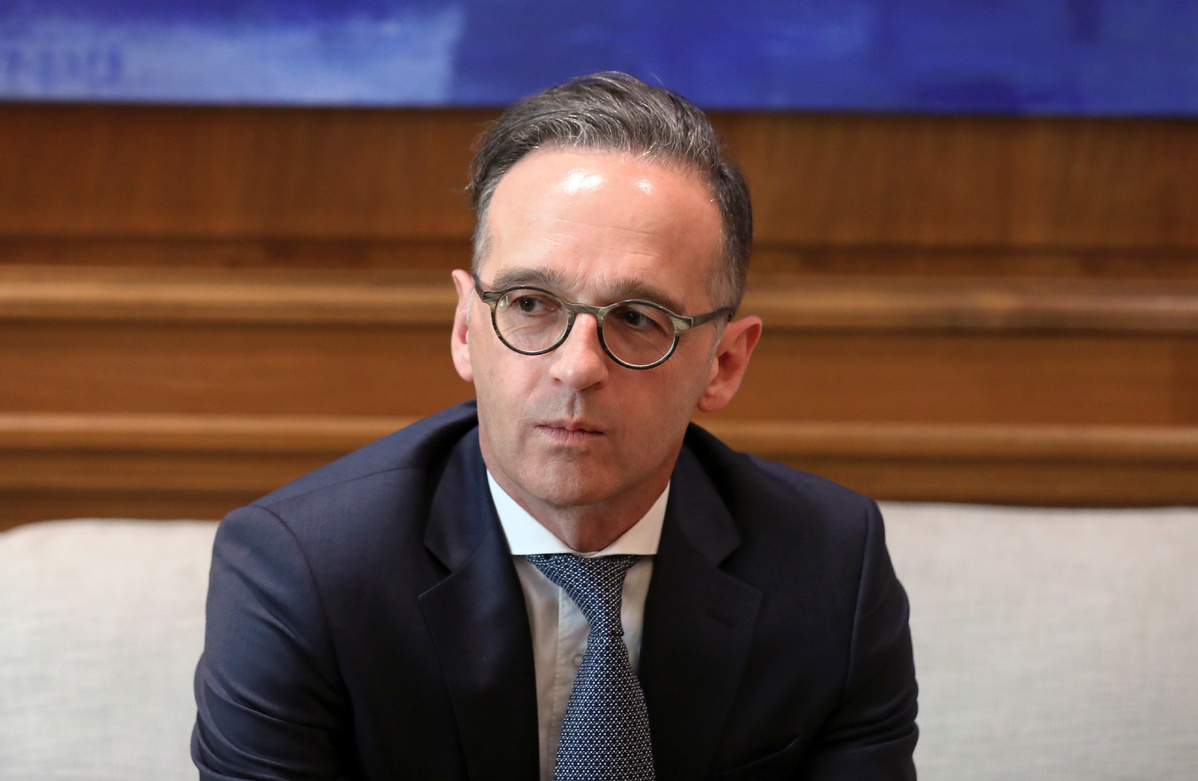Maas must desist from spreading wrong notions about China
By Chen Weihua | China Daily | Updated: 2020-11-13 07:19

It was undiplomatic of German Foreign Minister Heiko Maas to send a congratulatory message on Nov 7 to former US vice-president Joe Biden and Senator Kamala Harris after they were projected to be the winners of the 2020 presidential election."We intend to put forward concrete proposals on how we can close ranks as a transatlantic community-be it with regard to players such as China, climate protection or the global fight against the COVID-19 pandemic," the message said.
It's no secret that Maas does not see eye-to-eye with China on some issues, but why exactly did he include China with climate change and the pandemic in his list of challenges is beyond imagination.
In sharp contrast, German Chancellor Angela Merkel, when congratulating Biden and Harris on Monday, said she hoped the two countries would stand together to face "major challenges of our time", referring to the pandemic, climate change, terrorism, the global economy and free trade. Unlike Maas, she didn't even mention China, let alone cite China as a top challenge.
The same is true for European Commission President Ursula von der Leyen, a former German defense minister. In her speech to the 2020 EU Ambassadors' Conference on Tuesday, she congratulated Biden and Harris and hoped transatlantic ties would be strengthened. She didn't ask them to gang up against China, as Maas did. Instead, she called for the resumption of global cooperation and urged the US to rejoin the Paris Agreement and pledge to attain carbon neutrality, like China and some other countries have done.
Neither Biden nor Harris has spoken about rallying Germany or the European Union against China as a priority in their post-election remarks.
So, is Maas trying to send a wrong signal to drive a wedge between China and the United States and preempt a possible improvement in the world's most consequential bilateral relationship?
It is a no-brainer that the COVID-19 pandemic and climate change are by far the top challenges facing the world today, especially given that the US and the EU are both epicenters of the pandemic. The EU aspires to become the first climate neutral economy by 2050 while the US has yet to make its commitment.
It is not unusual for Maas to send a message different from Chancellor Merkel since they belong to different political parties in the German coalition government. Back in August 2018, Merkel dismissed an opinion piece by Maas in the daily Handelsblatt as his personal view after he suggested Europe's estrangement from the US runs much deeper than the frustration with US President Donald Trump. He said that after 70 years of dependence on the US, Europe should pursue "a new world order".
But contrary to what he wrote in the op-ed in 2018, Maas seems to have made a 180-degree turn in his thinking.
Although Maas said just two months ago that a decoupling of relations between the EU and China "is not in our interest, it is in nobody's interest, both politically and economically. There are more reasons for better cooperation", his latest remarks reflect a thinking found among some unwilling to accept China's rise.
Daniel Gros, director of the Centre for European Policy Studies, wrote an article for Project Syndicate last week, saying that the next US administration should accept China's continued economic and technological rise. He added that further refusals to do so would be not only futile but also very costly.
There are many dialogue mechanisms between China and Germany, and China and the EU to expand cooperation and tackle their differences, including those by Maas. The 5th China-EU High-Level People-to-People Dialogue held online on Tuesday is one of them.
Maas needs to rectify the anti-China message he sent to Biden and Harris on Nov 7.
The author is chief of China Daily EU Bureau based in Brussels.
If you have a specific expertise and would like to contribute to China Daily, please contact us at opinion@chinadaily.com.cn , and comment@chinadaily.com.cn
























